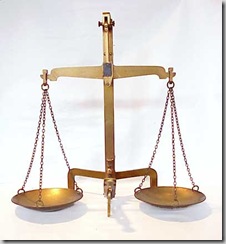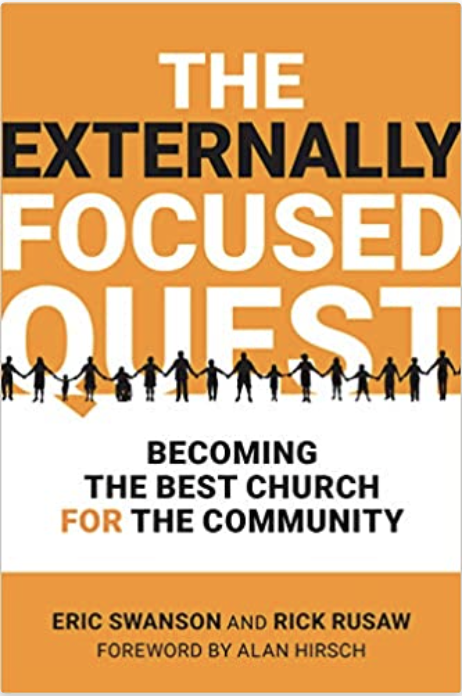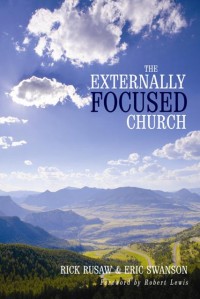Measure what you value or you’ll only value what you measure
 A couple of months ago I came across an article in Harvard Business Review entitled, “You Are What You Measure” (June 2010, p. 38). The author, Dan Ariely argued quite persuasively that CEOs of publically traded companies are measured by one thing—stock (shareholder) value. This measure drives behavior and performance. Ariely convincingly states, “If we want to change what CEOs care about, we should change what we measure.” For credibility he writes, “…psychologists and economists…tell you… “Anything you measure will impel a person to optimize his score on that metric. What you measure is what you get. Period.” Now check out his all-too-real illustration! “Give someone frequent flyer miles, and he’ll fly in absurd ways to optimize his miles.” OK…time for a confession. Several years ago when I was flying to Orlando and back I would buy what were called “nested tickets”—considered a “no-no” by the airlines, but a great way to by-pass the “to get a discount you must stay over a Saturday night” rule. Basically you would use the front end of DEN-MCO going and the front end of MCO-DEN of another ticket for the return flight. One would then use the return segments for a completely different trip. One time I booked the back end tickets over spring break and took the needless flight to Orlando to get the miles and with the chance I might get bumped. The metric drove my (pathological) behavior.
A couple of months ago I came across an article in Harvard Business Review entitled, “You Are What You Measure” (June 2010, p. 38). The author, Dan Ariely argued quite persuasively that CEOs of publically traded companies are measured by one thing—stock (shareholder) value. This measure drives behavior and performance. Ariely convincingly states, “If we want to change what CEOs care about, we should change what we measure.” For credibility he writes, “…psychologists and economists…tell you… “Anything you measure will impel a person to optimize his score on that metric. What you measure is what you get. Period.” Now check out his all-too-real illustration! “Give someone frequent flyer miles, and he’ll fly in absurd ways to optimize his miles.” OK…time for a confession. Several years ago when I was flying to Orlando and back I would buy what were called “nested tickets”—considered a “no-no” by the airlines, but a great way to by-pass the “to get a discount you must stay over a Saturday night” rule. Basically you would use the front end of DEN-MCO going and the front end of MCO-DEN of another ticket for the return flight. One would then use the return segments for a completely different trip. One time I booked the back end tickets over spring break and took the needless flight to Orlando to get the miles and with the chance I might get bumped. The metric drove my (pathological) behavior.
Ariely continues: “To change CEO’s behavior, we need to change the numbers we measure…. What are those numbers? … Here are a few choices: How many new jobs have been created at your firm.? How strong is your pipeline of new patents? How satisfied are your customers? Your employees? What’s the trust in your company and brand? How much carbon dioxide did you emit?”
Ariely talks about CEOs but what about pastors. Our “stock price” is usually measured in attendance and giving. We end up valuing what we measure as much as I valued and measured frequent flyer miles. If we value what we measure, what would happen if we changed what we measure? Back in March my friend Rick Rusaw and I released a book called The Externally Focused Quest: Becoming the Best Church FOR the Community. In the title we were attempting to change the scorecard. Every church has the same resources at its disposal—people (including leaders), facilities, budget, time, technology and prayer. Pastors can either use those resources to attempt to become the best church IN the community or use them to attempt to become the best church FOR the community. The preposition changes everything. Here’s an excerpt from our book: In June 2008, W. David Phillips posted an entry on his blog (http://www.wdavidphillips.com)) titled “Measuring Success in Ministry” David reflected on a question Len Sweet had posed in his doctoral class regarding “metaphors that will describe how we measure success in the church in the future.” Eschewing the traditional measurements of how many, how often and how much, here is the list the class (with a few later additions from David) came up with:
1. The number of cigarette butts in the church parking lot
2. The number of adoptions people in the church have made from local foster care
3. The number of pictures on the church wall of unwed mothers holding their newborn babies in their arms for the first time
4. The number of classes for special needs children and adults
5. The number of former convicted felons serving in the church
6. The number of phone calls from community leaders asking the church’s advice
7. The number of meetings that take place somewhere besides the church building
8. The number of organizations using the church building
9. The number of days the pastor doesn’t spend time in the church office but in the community
10. The number of emergency finance meetings that take place to reroute money to community ministry
11. The amount of dollars saved by the local schools because the church has painted the walls
12. The number of people serving in the community during the church’s normal worship hours
13. The number of non-religious-school professors worshiping with you
14. The number of people wearing good, free clothes that used to belong to members of the church
15. The number of times the church band has played family-friendly music in the local coffee shop
16. The number of people who have gotten better because of free health clinic you operate
17. The number of people in new jobs thanks to the free job training center you opened
18. The number of micro-loans given by members in your church
19. The number of churches your church planted in a 10 mile radius of your own church
I’m not suggesting these are these are the right measurements for your church but there are better measurements that you could discover and embrace and let them be something you and God really value because you will…at the end of the day…value what you measure.









The only one I don’t get is number 1 – are you looking for more or less cigarettes?
Thanks for the post Eric. Very thought provoking … not only for organizations but for individuals too. It’s got me thinking about what do I measure in my personal life and is it in alignment with my values.